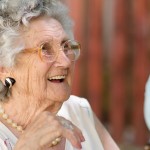
With the numbers of older people increasing their health is increasingly important. Health promotion and prevention is important for active ageing and oral health is an important component of this. In addition to tooth loss and periodontal disease dry mouth and changes in oral function and denture management lead to discomfort, dysphagia, loss of appetite and malnutrition and is thought to affect about 30% of older patients
The aim of this review was to assess whether oral health promotion programmes for community‐dwelling elderly were effective in improving oral health and oral saliva secretion or in decreasing dry mouth.
Methods
Searches were conducted in the PubMed/Medline, Cochrane Library, CINHAL, and Embase databases. Two reviewers independently selected studies for inclusion. Experimental studies involving coral health programmes in community-dwelling patients aged 60 or older with control groups published in English or Korean were considered. Study quality was assessed using the Joanna Briggs Institute Critical Appraisal Checklist for Experimental Studies. Meta-analyses were conducted for oral salivary secretion and Oral Health Related Quality of Life (OHQoL).
Results
- 9 studies (2 RCTs) involving a total of 712 patients were included
- Sample sizes ranged from 42 – 150 with average age of 75 years with interventions being provided for 4 to 12 weeks.
- 8 studies were conducted in Korea one in Japan.
- All included studies assessed salivary secretion rates with 6 papers assessing OHQoL.
- Meta-analysis (9 studies) indicated that elderly participating in oral health programmes had significantly increased oral salivary secretion rates Standard mean difference (SMD) = 0.63 (95%CI; 0.37 – 0.90)
- OHQoL was also improved in elderly patients participating in oral health programmes. SMD = 0.80 (95%CI; 0.34 – 1.26) [4 studies].
Conclusions
The authors concluded: –
Oral health promotion programmes in the elderly provide the positive effects of relieving dry mouth and improving OHQoL. This systematic review confirmed the contents and effects of the oral health promotion programmes provided to community-dwelling elderly.
Comments
The authors have searched a good range of databases although the limitation to English and Korean may have excluded some relevant studies. Almost all of the included studies come from Korea with the exception of a single study from Japan which may have some implication for generalisability of the findings. While the findings suggest that oral health programs have a beneficial effect on both saliva secretion and oral health related quality of life only two of the studies were randomised controlled trials and only one study used blinded outcome assessment. While good oral health is increasingly being recognised as an important component of general health it often does not have the same priority in healthcare systems or with patients. Although increasingly there is a focus on providing or healthcare in nursing and care homes accessing community dwelling elderly patients may be more challenging for the delivery of oral health programs. Improving care for these population groups will require further research to identify the most suitable way of delivering both programs and care do you know order to deliver best oral health for these populations.
Links
Primary Paper
Seo K, Kim HN. Effects of oral health programmes on xerostomia in community-dwelling elderly: A systematic review and meta-analysis. Int J Dent Hyg. 2020;18(1):52–61. doi:10.1111/idh.12418
